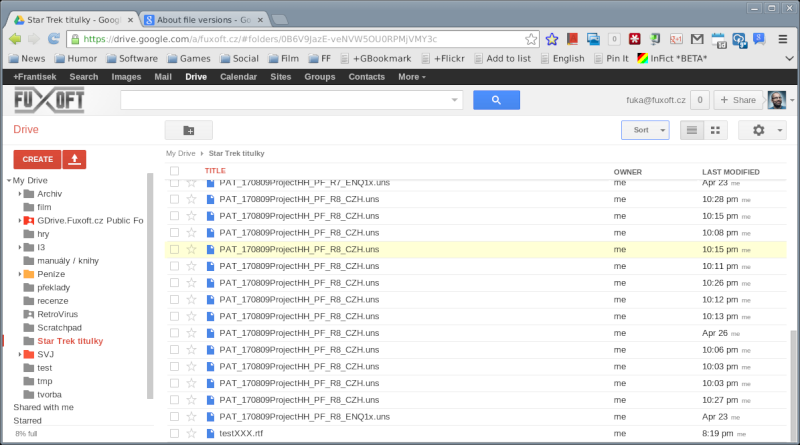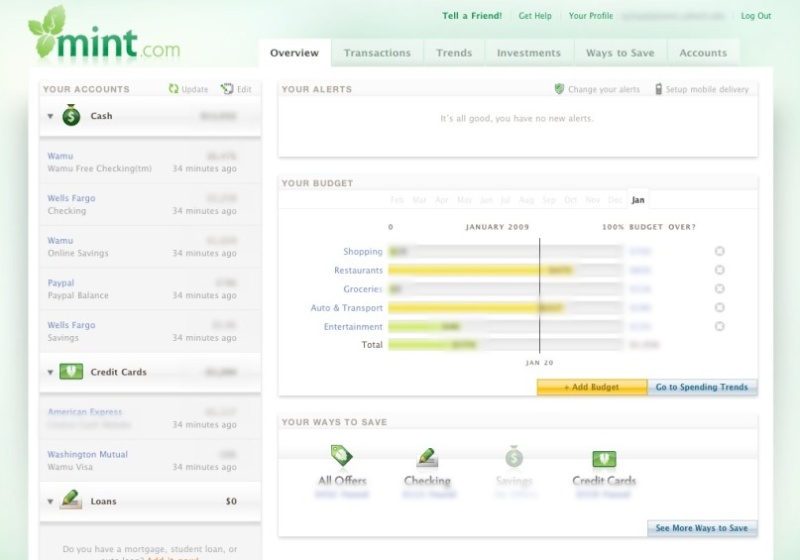Freelancer Advice: Tools I’m Using to Boost My Productivity

I’ve been working as a freelance writer for more than a year now. It took me a long time to get used to a flexible schedule, learn how to manage my time effectively and develop a healthy work/life balance. I’ve decided to write this article to share my experience with those of you who are considering pursuing a career as a freelance writer.
I used to be a big fan of chaos. I thought that creativity was something that comes and goes, and inspiration only shows up in small doses. I didn’t realize that you can trick yourself into being inspired. I didn’t invest any time in building a healthy work routine, at least in the beginning. I was wrong.
When I first became a full-time freelance writer a little over a year ago, I got so excited about the freedom and flexible schedule that I barely got anything done. I started sleeping until noon, I became a master procrastinator and I logged in way too many hours on Netflix. I was basically slacking off. Consequently, the quality of my work dropped considerably. Clients were starting to notice and express their concerns; friends suddenly got worried. I was always telling them, “I’m staying in to get some work done,” while I was actually spending entire days curled up on my sofa, in pajamas, staring at a blank screen and distracting myself with funny cat videos and useless Buzzfeed lists. I was in big trouble.
Luckily, in my brief moments of lucidity, I still managed to write some good pieces for my top clients, which kept me from losing them. Otherwise, I would have failed miserably to make ends meet at the end of each month. Even so, all those pieces were written during late hours at night, after several cups of coffee and energy drinks. My sleep patterns were seriously affected and my productivity levels suffered immensely because of my chaotic schedule.

I started to wonder how on Earth I had managed to get more work done when I was only a part-time freelancer. I used to get home from my day job and log in some serious writing hours in the evening. So I was baffled – now I had all this time on my hands and couldn’t manage to pull myself together. That’s when I knew I had to do something to get myself back on track. I analyzed what was missing and it unexpectedly hit me: I needed to come up with a work routine.
The truth is that the life of a freelancer writer isn’t as glamorous as one might think. You need to deal with difficult clients, craft a schedule that works for you and overcome the dreaded writer’s block. However, if you’re determined, motivated and disciplined, you can achieve great results. I now have a solid portfolio of clients, I haven’t missed a deadline in months and I still manage to have a pretty great social life. What changed? I focused on establishing healthy working patterns and worked on improving my productivity.
First off, I set “working hours.” I forced myself to wake up earlier and earlier and get most of my work done in the morning. I’ve learned how to successfully avoid distractions, and I’ve gotten more organized. I will share them with you below – maybe you can learn something from my experience.

Evernote #
I truly believe that every writer out there should start using Evernote immediately. I use it primarily to keep track of my writing assignments. I enter a note for every assignment. I document for whom I am doing the work; I include any editorial instructions or email conversations that are relevant, and I use the reminder feature to set a note reminder a couple of days ahead of the actual due date. I also complete the note with useful links, comments or ideas I might come up with along the way. This makes it very simple to keep a close eye on my tasks and my progress.
I also use Evernote to keep track of all of the payments I receive and the expenses I incur as they relate to freelance writing. When I receive a check, I scan it into the program and change the Create Date of the note to match the date on the check. When tax time comes around, I simply search for all the notes tagged “payment” with a create date in the current year to calculate my income.

Remote desktop software #
I’ve never been good at troubleshooting computers, and we all know how frustrating technical issues can be, especially when clients expect a quick turnaround. Luckily, after searching for a while, I found a reliable remote support company I can contact whenever my laptop is acting out. They use a remote desktop program to connect to my workstation, determine what’s wrong and fix the issue. It’s quick and painless; it also helps me avoid long conversations on the phone, trying to explain the problem.

Google Drive #
Google Drive lets you store and access your files anywhere, from any device. As a freelance writer, I find this very practical. Now, anytime a client needs a quick answer to a question regarding my work or requires a document sent over immediately, I can assist them even if I’m away from my computer.
I’ve managed to increase client satisfaction along the way, not to mention the fact that I was able to update documents on the go, whenever I was stuck in traffic or in line at the airport (my parents don’t live in the same city as me and I visit them quite often).

Mint.com #
I was never a financially responsible person. In fact, I still dread the idea of sticking to a budget and tracking my spending. However, when you work as a freelancer and your income fluctuates, it’s important to make sure that you can pay all your bills and cover your living costs every month.
Mint.com really helps in this department: it organizes my finances and helps me stick to a budget by sending regular email and mobile alerts. Since using it, I managed to considerably reduce my debt and start an emergency fund, which will help in the event I lose a client and it takes me a while to replace them. (Though, I really hope that doesn’t happen.)
![]()
Focus Booster #
Focus Booster is a software timer that uses the Pomodoro technique, which breaks down periods of work into 25-minute intervals, separated by breaks (the standard is 5 minutes). Pomodoro time management is based on the theory that frequent breaks can improve mental agility. It’s true – it made me more productive and focused. I use Focus Booster to track my time and make sure I take the breaks necessary. In those 5 minute breaks, I like to move around the house a little, get a snack or check social media. When those 5 minutes are up, however, I get back to work.
These are the five tools that made my life as a freelance writer considerably easier. I’m curious about your experience as well. What apps or programs do you use to boost your productivity? Be sure to leave a comment!